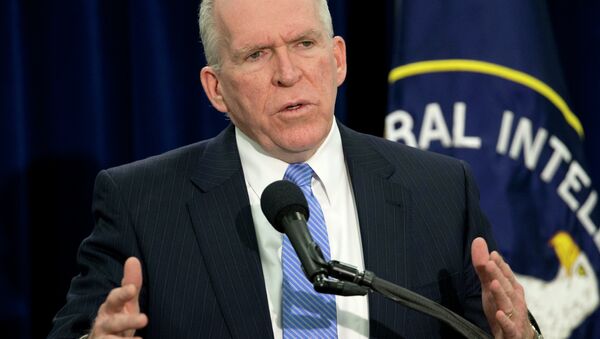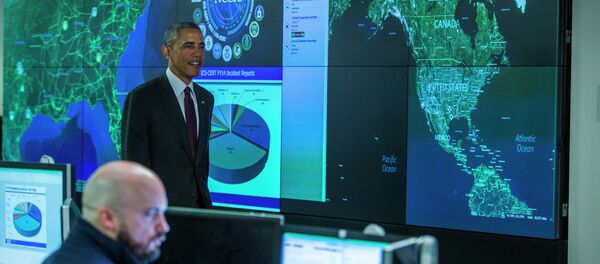The changes will come as part of a restructuring effort after the agency decided that in the age of digital media, it’s traditional, human-centered approach to intelligence gathering is behind the times, US officials told the Washington Post.
“[CIA Director John] Brennan is trying to update the agency to make sure it is prepared to tackle the challenges in front of it,” said a U.S. official familiar with the plan told the Post, adding that “I just don’t think you can separate the digital world people operate in” from the CIA’s traditional methods.
Though it’s not confirmed, the agency may go so far as to create a new cyber directorate as part of a shift to break down barriers between it’s analysis and operations branches. However, CIA spokesman Dean Boyd said that “final decisions have not yet been made with respect to agency reorganization efforts.”
The fact that broad organizational changes were being considered for the agency first made headlines when a memo was partially made public in November 2014.
“I have become increasingly convinced that the time has come to take a fresh look at how we are organized as an agency and at whether our current structure, and ways of doing business, need adjustment,” read part of message from Brennan to CIA employees obtained by the Post at the time.
The CIA already has an Information Operations Center which conducts cyber-espionage, and which will be elevated under a cyber-expansion, and an Open Source Center, which searches publicly available data like social media posts and online forums. The expansion, into what is normally considered the NSA’s territory will no doubt fuel debates on whether US intelligence agencies inefficiently duplicate espionage efforts, as the intelligence community grows unwieldy.
— Patrick Eddington (@PGEddington) February 23, 2015
“There’s only one entity in the entire universe that has visibility on all [Special Access Programs] — that’s God,” James Clapper, — then being considered for his current position as head of the NSA — was quoted as saying in a 2010 investigation by the Post which exposed the extent to which the intelligence community had grown post-9/11.
However, former CIA officials said that the new plan wouldn’t invade the NSA’s turf or that of the new cyber-intelligence agency Obama recently announced the creation of. On the contrary, Stephen Slick, director of the University of Texas at Austin’s Intelligence Studies Project, called the planned shifts “entirely appropriate” for the current climate.
“Advances in digital technology are having a revolutionary impact on the intelligence business, and it’s important for CIA to adapt its collection and covert action missions to account for the new opportunities and dangers.”




